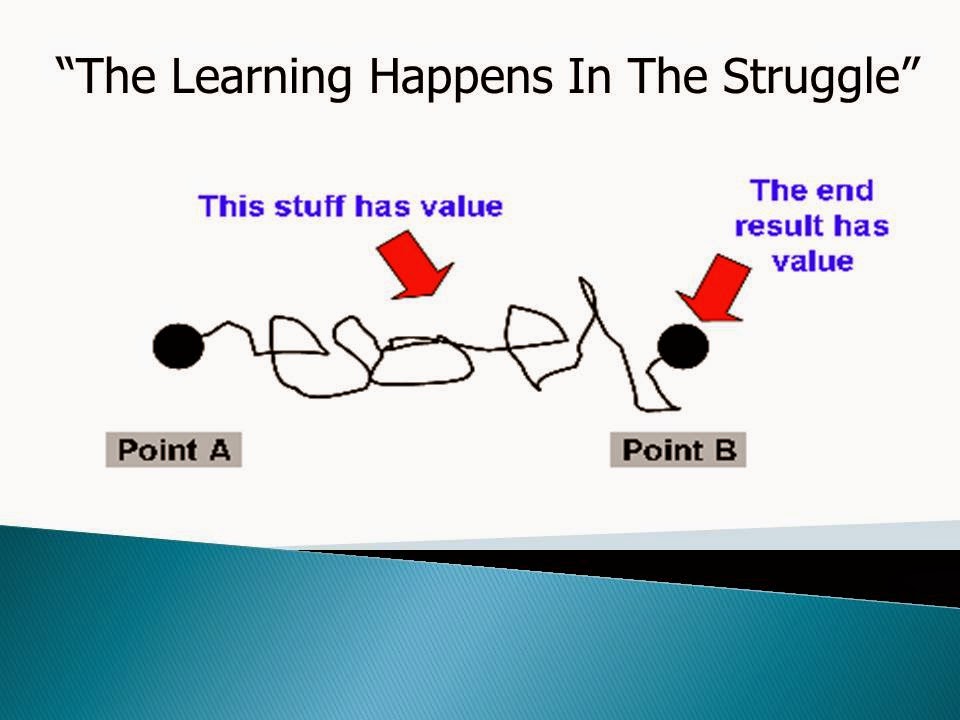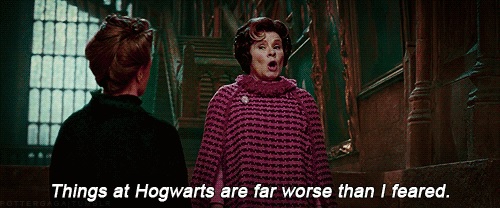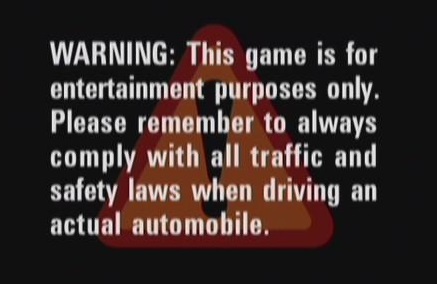 There’s a letter making the rounds on social media (there may be several) apparently written by a high school student to her principal protesting the school’s dress code. The gist of it is that girls are busted for dress code far more than boys, it’s not the girl’s responsibility to control boys’ thoughts and lusts, dress codes create a ‘rape culture’ (this term was specifically used), and basically demanding – as a blow for female equity – that girls should be able to dress as they damn well please at school or anywhere else.
There’s a letter making the rounds on social media (there may be several) apparently written by a high school student to her principal protesting the school’s dress code. The gist of it is that girls are busted for dress code far more than boys, it’s not the girl’s responsibility to control boys’ thoughts and lusts, dress codes create a ‘rape culture’ (this term was specifically used), and basically demanding – as a blow for female equity – that girls should be able to dress as they damn well please at school or anywhere else.
I have nothing against this young lady or her stand, and appreciate anyone able to make their case (in writing, no less!) and support it with whatever reasoning they have on hand. I don’t buy her argument, but that’s OK, too. It caught my attention – which was perhaps its goal, given that it ‘somehow’ ended up on social media.
I write regularly about trying to step out of our passionate convictions a bit and try to see why other people believe and do stuff that’s so obviously insane, ignorant, or evil. I throw in a few social/political examples, but mostly I try to avoid getting mired in specific issues.
Then this letter starts showing up on my timeline. And sometimes I just can’t help myself.
Because this is exactly the sort of situation likely to produce strong feelings on all sides – the sense of violation! The outrage! The ridiculousness of this even being a question! And that’s on BOTH sides – the why-do-we-always-shame-women-like-primitive-misogynistic-pigs side and the why-is-it-so-important-to-you-to-dress-like-a-bimbo-do-you-not-have-a-mother side.
 Why She’s Right:
Why She’s Right:
I respectfully suggest to those who find this young lady’s concerns bewildering that she’s on good historical ground. It wasn’t that long ago that a woman showing her ankles was taboo. Restrictions on what a lady could eat, read, think, or do were insane by today’s standards. Whatever rhetoric was utilized at the time, looking back we generally suspect the rules had more to do with male dominance and social order than anything.
Anytime women challenge the norm regarding ANYTHING, the first charge levelled at them is some variation of “whore”. But when did HIS thoughts become HER responsibility? Are you upholding decency, or giving lunch detention to Hester Prynn?
Besides, everyone’s wearing them. You’ve met the English Department? Social standards regarding dress have evolved. Just because schools are trapped in a 19th century model doesn’t mean she has to be.
Why She’s Wrong:
We as a school are charged with doing what we can to create a “safe learning environment” – with ‘safe’ covering a pretty ambiguous swath of meaning. Whatever the historical reality or modern ideals regarding individual liberty, most of what we do impacts those around us in one way or the other. As it turns out, most teenage boys like teenage girls. They like boobs and butts and even shoulders.
Actually, they’re aroused and distracted by pretty much anything not involving Algebra or dangling participles.
There’s no perfect place to draw the line on dress code. I assume you’re comfortable with the idea that we require students to wear clothes at all? If I were to teach naked for a few days, am I responsible for YOUR distracted thoughts or prurient feelings? Too extreme? How about a thong and pasties – acceptable, or…? Shorts and sandals? Suite and tie? What about without the tie?
 It’s all a continuum. Yes, standards change. They change over time and they change from place to place. When I started teaching, visible tattoos or brightly colored hair were dress code violations – they were ‘distractions’. They are apparently not distractions anymore – both are common and no one cares. And no, neither schools nor other types of government outgrowths tend to do a good job keeping up with social changes.
It’s all a continuum. Yes, standards change. They change over time and they change from place to place. When I started teaching, visible tattoos or brightly colored hair were dress code violations – they were ‘distractions’. They are apparently not distractions anymore – both are common and no one cares. And no, neither schools nor other types of government outgrowths tend to do a good job keeping up with social changes.
But we try.
So, those tights of which you’re so proud? Yes, “everyone” seems to be wearing them – here and at the mall and everywhere you go. And yes, boys should keep their eyes to themselves. They should also do their homework without being reminded and bathe regularly and pursue learning for its own sake through project-based inquiry and collaboration.
“If men were angels, no government would be necessary…”
If your music is too loud, we ask you to turn it down – or prohibit iPods altogether. If your t-shirt is offensive, we ask you to change. The First Amendment is still in play, but we have great leeway regarding the extent of it within these walls. You’re minors, and we’re serving a compelling government function in loco parentis. The desire to make you useful – possibly even well-rounded – drives everything from paint color to security procedures. Your see-through no-panties tights and your more-outside-than-inside cleavage are distractions from this.
Maybe they shouldn’t be. But they are.
That’s my official answer. But behind it is something undeniably old school and paternal – which I don’t even like to admit.
 What I won’t tell you, because I’m an old man and you’re not my daughter, is that it breaks my heart to see you dressing in a way that, while you can defend it however you like (“I went as Slutty Nurse-Kitty for Halloween because it makes ME feel good – not because I care what anyone else thinks!”), nevertheless radiates with a hunger for the approval of teenage boys, perhaps with a side of envy from teenage girls.
What I won’t tell you, because I’m an old man and you’re not my daughter, is that it breaks my heart to see you dressing in a way that, while you can defend it however you like (“I went as Slutty Nurse-Kitty for Halloween because it makes ME feel good – not because I care what anyone else thinks!”), nevertheless radiates with a hunger for the approval of teenage boys, perhaps with a side of envy from teenage girls.
It hurts my soul that you so vigorously defend your right to dress as a steak in a school half-filled with hungry wolves. Nothing against my boys – but hormones and puberty combined with popular culture are a monster to control. Maybe you’re not doing it for their attention, or to make a statement to anyone else. Maybe you really are one of the small percentage of adolescents entirely immune to the pressures of your culture and your peers.
So I’m not going to suggest your time might be better spent asking yourself why you consider blue jeans or slacks such a bitter imposition. I wouldn’t presume to ask why you can’t build your sense of what’s “cute” on something other than the clarity of your booty-crack or the number of quarters someone could bounce into your cleavage. I’m a male – and an old, straight, white one at that – and in modern culture you know as well as I that I have no right to question such things on any level.
If I could, though, I would ask you – not because I think you’re a slut or that you’re an idiot. I’d ask because I want to see you pondering your self-image and how you present yourself on levels beyond the obvious. I’d ask because I want you to understand that you need not choose between the OldWhiteRepublicanCloseYourLegsWench Ditch on one side or the FemaleEmpowermentEqualsNudityAndDrunkGirlsKissing Pitfall on the other.
I’d ask because yeah – dress code can be a distraction for my boys. And yeah – learning to dress professionally IS part of what we’d kinda like to communicate here. But mostly I’d ask because I want big things for you. Better things. Powerful things.
Things hard to do in tights, yoga pants, or leggings.

 Why She’s Right:
Why She’s Right: 



 We’ve taught them to be completely helpless. We’ve trained them not to move until we tell them exactly what to do, and how, and then do it for them. The learning does indeed happen in the struggle, but how do they learn to struggle without, well… struggling?
We’ve taught them to be completely helpless. We’ve trained them not to move until we tell them exactly what to do, and how, and then do it for them. The learning does indeed happen in the struggle, but how do they learn to struggle without, well… struggling? 
 I feel myself giving in… letting go of the idealistic ‘oughta work’ and looking longingly towards the ‘would actually result in learning.’ I feel myself slipping off-program, avoiding my admins, and lying to my PLC about what I’m really doing in class that day.
I feel myself giving in… letting go of the idealistic ‘oughta work’ and looking longingly towards the ‘would actually result in learning.’ I feel myself slipping off-program, avoiding my admins, and lying to my PLC about what I’m really doing in class that day.  The State of Oklahoma, like many others, is determined to assign numbers and letters to the schools and teachers within its purview. Like the standardized testing of students on which many of these numbers and letters are based, the conviction seems to be that if you just keep pretending to measure things in ridiculously oversimplified ways designed to guarantee widespread failure, you’re “reforming” the system and calling forth a brighter future for all. This is analogous to – actually, never mind the analogy. It’s just stupid.
The State of Oklahoma, like many others, is determined to assign numbers and letters to the schools and teachers within its purview. Like the standardized testing of students on which many of these numbers and letters are based, the conviction seems to be that if you just keep pretending to measure things in ridiculously oversimplified ways designed to guarantee widespread failure, you’re “reforming” the system and calling forth a brighter future for all. This is analogous to – actually, never mind the analogy. It’s just stupid. Summative Assessment is the other category. It’s the ‘BIG TEST’ at the end of a unit or a semester. These attempt to document what students “walk away with” in knowledge and skills. The data can identify strengths and weaknesses of individual teachers so we can help each other improve, or help compare classes from year to year. For students it’s generally the finish line, for better or worse – here’s how you did, now off with thee.
Summative Assessment is the other category. It’s the ‘BIG TEST’ at the end of a unit or a semester. These attempt to document what students “walk away with” in knowledge and skills. The data can identify strengths and weaknesses of individual teachers so we can help each other improve, or help compare classes from year to year. For students it’s generally the finish line, for better or worse – here’s how you did, now off with thee. The A-F Report Card given by the State of Oklahoma to its public schools each year does none of the things assessment is supposed to do. It provides no support, and intentionally limits the data it is willing to consider. There are no adjustments on the part of the state based on how well a given school is doing, and no conversation regarding options for improvement. It’s not even measuring most of the things we claim are most valuable to us. It is merely calculated and published, and each year more and more schools are sent to sit in the corner with their ‘dunce’ caps on.
The A-F Report Card given by the State of Oklahoma to its public schools each year does none of the things assessment is supposed to do. It provides no support, and intentionally limits the data it is willing to consider. There are no adjustments on the part of the state based on how well a given school is doing, and no conversation regarding options for improvement. It’s not even measuring most of the things we claim are most valuable to us. It is merely calculated and published, and each year more and more schools are sent to sit in the corner with their ‘dunce’ caps on. There is a good case to be made that part of our job as educators is to prepare students for the ‘real world’ – whatever that is. We could thus argue that deadlines and responsibility are valid goals of public education. In the ‘real world’, you’re expected to do stuff when it needs to get done. Rolling in at 3 p.m. with “hey, here are those burgers you asked for during the lunch rush” isn’t going to cut it, nor will you get paid half if you simply don’t make them at all.
There is a good case to be made that part of our job as educators is to prepare students for the ‘real world’ – whatever that is. We could thus argue that deadlines and responsibility are valid goals of public education. In the ‘real world’, you’re expected to do stuff when it needs to get done. Rolling in at 3 p.m. with “hey, here are those burgers you asked for during the lunch rush” isn’t going to cut it, nor will you get paid half if you simply don’t make them at all. And no matter how modern or flipped or inquiry-based I may try to be, there are still things that require grading. I hate grading, but there’s a limit to how much I can job out to students and still be able to sleep at night. There are things they can learn from peer evaluation, but half-a-class spent announcing that #1 is A, #2 is C, etc., is an embarrassing waste of limited time. Besides, most of what I’m grading isn’t multiple choice.
And no matter how modern or flipped or inquiry-based I may try to be, there are still things that require grading. I hate grading, but there’s a limit to how much I can job out to students and still be able to sleep at night. There are things they can learn from peer evaluation, but half-a-class spent announcing that #1 is A, #2 is C, etc., is an embarrassing waste of limited time. Besides, most of what I’m grading isn’t multiple choice. Yeah, yeah – poor overworked teacher. But this isn’t about me missing my tee time after school. What it means instead is that when I am working, at my desk or at home, I’m spending far more time and energy trying to figure out why little Johnny has handed in a page of Level Questions over some – well, over SOMETHING, I’m not sure WHAT – and whether or not they correspond to anything he’s missing in the gradebook – than I’m spending coming up with better ways to teach Johnny’s 150 peers the next unit. Flexible deadlines and nurturing late work policies mean I spend more time grading than preparing, or teaching, or collaborating, or whatever.
Yeah, yeah – poor overworked teacher. But this isn’t about me missing my tee time after school. What it means instead is that when I am working, at my desk or at home, I’m spending far more time and energy trying to figure out why little Johnny has handed in a page of Level Questions over some – well, over SOMETHING, I’m not sure WHAT – and whether or not they correspond to anything he’s missing in the gradebook – than I’m spending coming up with better ways to teach Johnny’s 150 peers the next unit. Flexible deadlines and nurturing late work policies mean I spend more time grading than preparing, or teaching, or collaborating, or whatever. How many angry lil’ Republicans are created this way – barely into high school and already learning that the harder they work, the more they are expected to drag along those who can’t or won’t, often at the expense of their own progress? At least under the old framework the best and brightest were merely ignored and marginalized under the assumption they’d still pass state tests and stay out of discipline trouble – under this new approach we can actively punish them for being responsible!
How many angry lil’ Republicans are created this way – barely into high school and already learning that the harder they work, the more they are expected to drag along those who can’t or won’t, often at the expense of their own progress? At least under the old framework the best and brightest were merely ignored and marginalized under the assumption they’d still pass state tests and stay out of discipline trouble – under this new approach we can actively punish them for being responsible! My daughter wanted a new backpack last year about this time, and after several unfulfilling stops, we ended up at Target. The selection was a bit slim, but she found something that seemed like a good combination of practical and not-entirely-embarrassing, and we took it to the nearest register.
My daughter wanted a new backpack last year about this time, and after several unfulfilling stops, we ended up at Target. The selection was a bit slim, but she found something that seemed like a good combination of practical and not-entirely-embarrassing, and we took it to the nearest register.
 I remember losing my composure and at some point nearly yelling that “THE COMPUTERS. ARE. NOT. IN. CHARGE!!!” before blacking out. Whatever happened seems to have worked – a few days later, my phone showed up.
I remember losing my composure and at some point nearly yelling that “THE COMPUTERS. ARE. NOT. IN. CHARGE!!!” before blacking out. Whatever happened seems to have worked – a few days later, my phone showed up. There’s a legal division somewhere covering someone’s corporate behind by advising me not to throw a rhino at a helicopter. We need a rule for that? Is there a label on the rhino?
There’s a legal division somewhere covering someone’s corporate behind by advising me not to throw a rhino at a helicopter. We need a rule for that? Is there a label on the rhino? We don’t judge teachers or their students on what they do well, but on what items they miss. Inspire your kids all you like, but if you don’t happen to be demonstrating requirements 4a, 4b, 7, and 11 and have your learning objectives on the board when your administrator drops in for five minutes, you suck. Write with passion, but if the MLA heading is on the top left instead of the top right, I can’t and won’t read it. It’s all about the policies.
We don’t judge teachers or their students on what they do well, but on what items they miss. Inspire your kids all you like, but if you don’t happen to be demonstrating requirements 4a, 4b, 7, and 11 and have your learning objectives on the board when your administrator drops in for five minutes, you suck. Write with passion, but if the MLA heading is on the top left instead of the top right, I can’t and won’t read it. It’s all about the policies. It’s not working, by the way – somehow no matter what we do, there’s always that bottom 5%.
It’s not working, by the way – somehow no matter what we do, there’s always that bottom 5%.